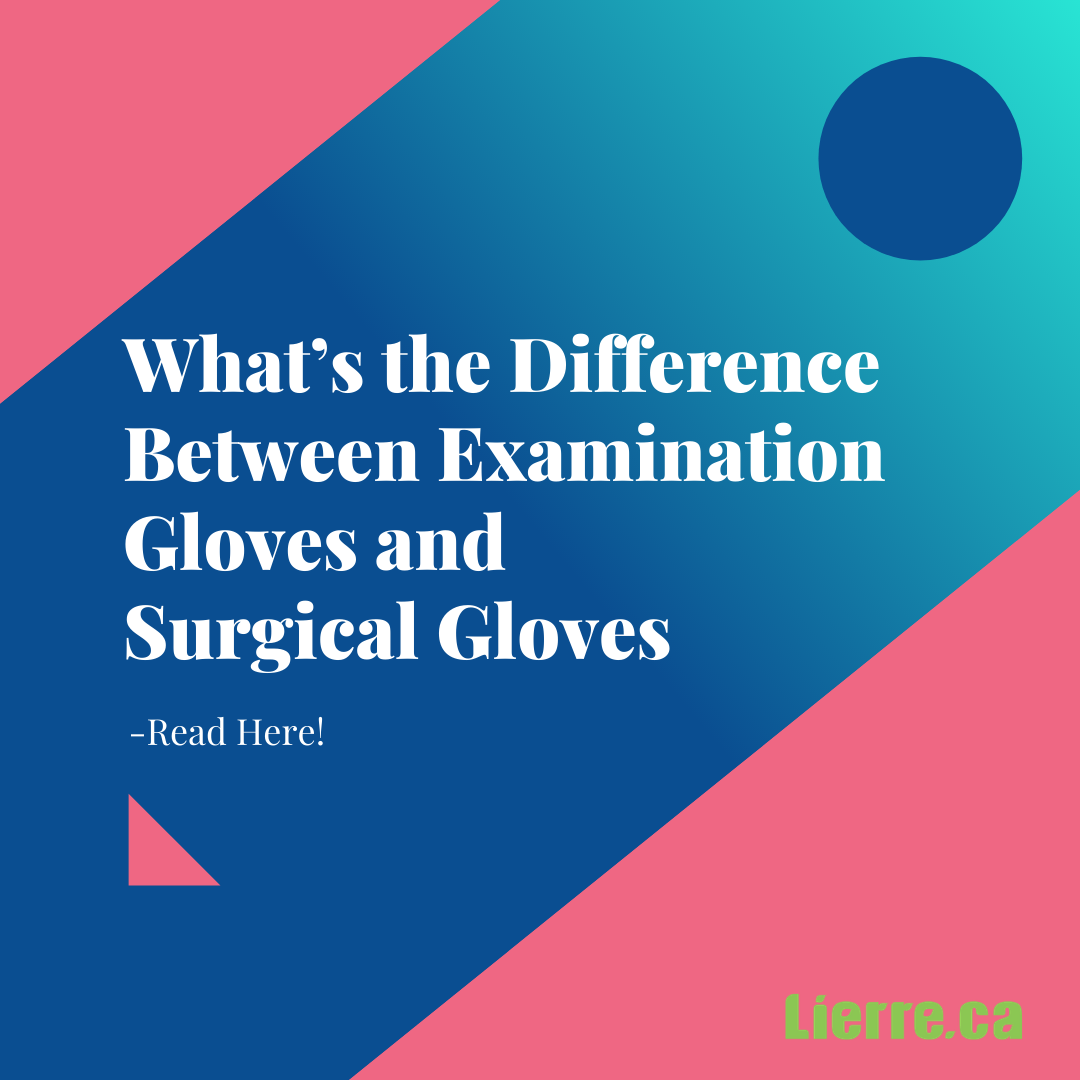Gloves. If you work in healthcare, chances are you use them frequently. Doctors and nurses employ examination gloves daily. Dentists and caregivers use them, as do pharmacists and personal support workers.
Beyond examination gloves, there are also surgical gloves. These are generally higher-quality, designed to be used in situations requiring the utmost in accuracy and sensitivity.
Understanding the differences between examination gloves and surgical gloves is important to know.
Why Examination Gloves Are in High-Demand
Exam gloves are made from materials like latex, vinyl, and nitrile. They are quality-made and effective in high-risk situations where protection from blood, bodily fluids, or infectious diseases is required.
For low-risk, general procedures, examination gloves are ideal. In these non-invasive physical exams or physical health environments, surgical gloves are not needed. In surgery, however, priorities are understandable different.
Surgical gloves are under stricter standards in production and are more heavily regulated. However, multiple studies show examination-standard gloves are equally effective as surgical gloves in non-surgical procedures.
Powder Gloves and Powder-Free Gloves
A point to be made on examination gloves are that they come as powder gloves and powder-free gloves.
Cornstarch is used in powdered gloves. This makes them easier to put on. The powder can be trouble if it gets into wounds or exposed body tissue during a surgery. For this reason, if you’re searching for exam gloves for more than just a physical examination, powder-free gloves are recommended.
Are Latex Examination Gloves Right for Me?
There are many great latex examination glove types out there, including the Ansell MICRO-TOUCH® NextStep® Latex Powder-Free Medical Examination Gloves (100 Pcs). They work. Advantages and disadvantages, however, also exist.
Latex gloves are comfortable, easy to put on, flexible, and an effective barrier against contaminants.
The downside to them is there is a risk of an allergic reaction to the rubber. Thinner latex examination gloves can mean more tears. Also, when they come in contact with oil, grease, hydrocarbons or similar materials, they can dissolve.
Are Nitrile Examination Gloves Right for Me?
Nitrile exam gloves are considered a superior option to latex. One of the better brands in this category is Ansell MICRO-TOUCH® NextStep® Latex Powder-Free Medical Examination Gloves (100 Pcs).
Nitrile gloves don’t have the same allergic reaction to rubber as latex. Nitrile is even more comfortable, more affordable, and offers better puncture and abrasion resistance. The disadvantage to nitrile are that they dissolve in contact with acetone.
For latex gloves, nitrile gloves, and other medical clinic accessories, order them at Lierre.ca. Examination gloves are a healthcare necessity. Get the high-quality medical supplies you deserve. If you work in a medical facility, it’s so simple to order and re-order the supplies you need on the daily. Set up an account today at Lierre.ca.


